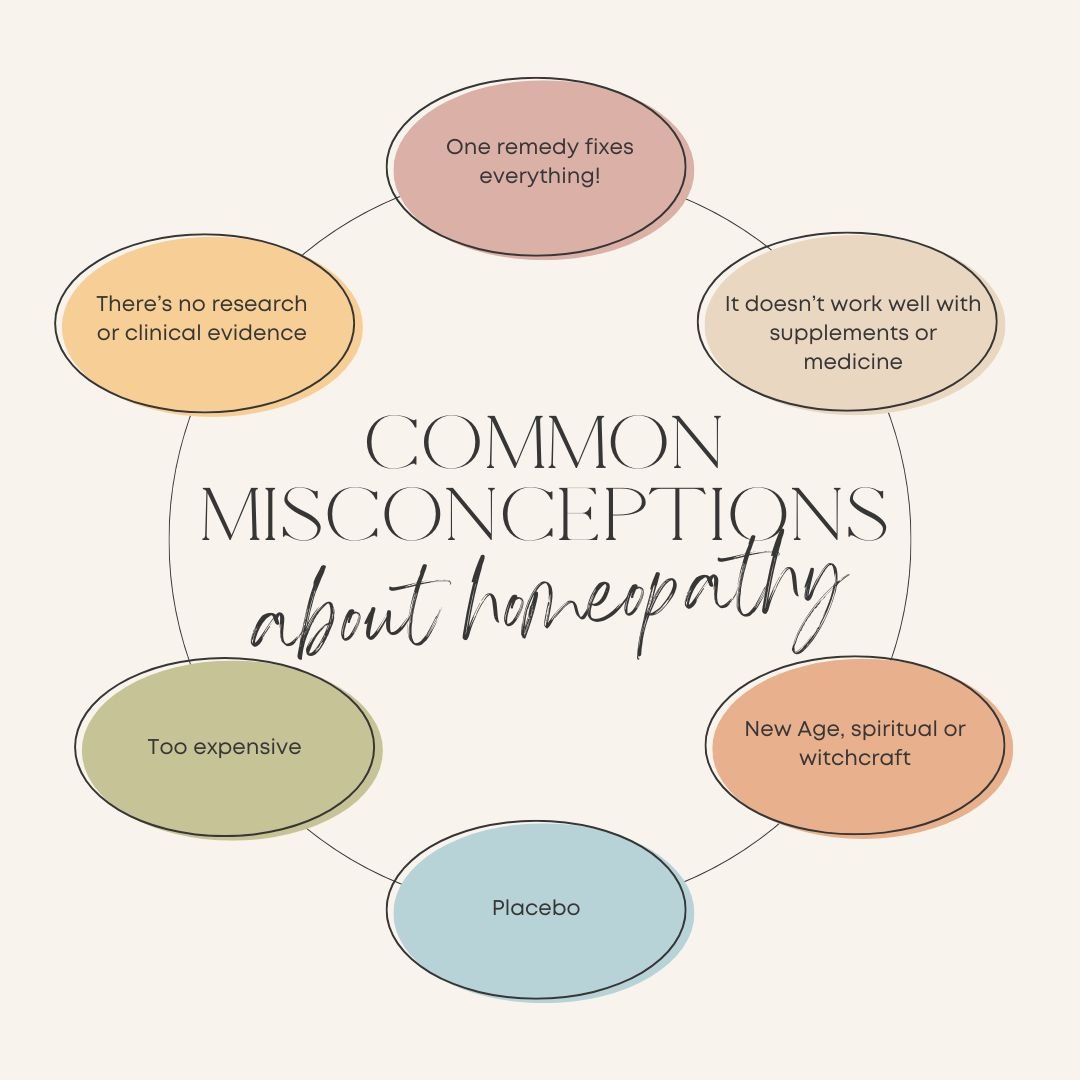More common misconceptions about homeopathy
I will admit, I get a little annoyed or upset sometimes when I see misinformation about what homeopathy is or isn’t on google or instagram or whatever social media platform or influencer is trying to say. When people ask me, “Does it really work?” it’s kind of offensive to be completely honest. I didn’t decide to leave my successful photography studio at 37 years old to spend a lot of money and go back to school to learn all about something that is just “placebo.” I had personal, first hand experience of what homeopathy can do with two of my kids who had PANDAS. It wasn’t a whim of a decision either. I always have wanted to help people, it’s just taken a little longer in life than I would have thought. Fun fact, I went to nursing school for a year and decided it wasn’t for me. Especially after almost passing out a few times at the sight of gross things 🤣
Back to the topic at hand after my little rant. I am fiercely proactive with Hahnemannian homeopathy, often called classical homeopathy. Why? Because he figured it out. He figured out how to do it, and that is what we have much of our clinical evidence and data on! Ever heard the term, if it’s not broke, don’t fix it? Also, you have to know the rules before you can break them. Are there times when I step outside of classical homeopathy to try and solve a problem…yes. But it is often temporary to help in an intense time.
“One remedy fixes everything”
Let’s start with the idea of “one remedy fixes everything.” Can it happen? Yes. But more often, you need multiple remedies over time to uproot “dis-ease.” Think of it as unraveling a ball of yarn that is really tangled. As things start to unravel and change, we follow the symptom picture. If that means a new remedy is needed, then we give it.
“I can’t use it with supplements or medicine”
Homeopathy plays nice with just about anything. It’s because it works on a different level than supplements or allopathic medicines. Often times we find that as you heal on a good homeopathic remedy, you need less supplements and less medications. As we see healing, we can have a conversation about asking your physician if you still need medications. This is a decision solely based on a conversation with you and your doctor. Homeopaths are not allowed to tell you to stop taking your medications!
“It’s new age, spiritual or witchcraft”
I will admit, this one bothers me the most. Homeopathy is based on a medical philosophy and the laws of nature set out by its founder Samuel Hahnemann, who was a doctor in his time. Over time, people have tried to take it into a spiritual direction, but that is not where the roots of homeopathy lie, and that is not a direction I go either when helping people. Are there people out there who do weird things and call it homeopathy? Absolutely. But homeopathy is based on the law of similars (like cures like), one remedy at a time, and based on the totality of symptoms in each individual. Anything outside that isn’t homeopathy. Remedies can sometimes be used outside of that philosophy…and that’s ok in some cases. An example would be using apis just because you got a bee sting. Instead of looking at the symptoms, which could lead you to a remedy like ledum, you just take apis because it was a bee that stung you. That is what you call an isopathic prescription. It means you used the same substance to help, not a similar substance. So, just because a homeopathic remedy is used for something, does not mean it’s homeopathy.
“It’s too expensive”
The actual homeopathic remedies themselves are extremely affordable, especially if you compare them to allopathic medications. Vials of remedies (the you often can keep for years without using them all) can range from $5-$15. Homeopathic consultation pricing varies greatly by experience, certification, and schooling. Those are all important things to consider before starting to see a homeopath. I recommend setting up and appointment beforehand to make sure you will work together well and that they are qualified to help you with your condition. Initial consults can range from $150-$400 on average. Some are less, some are more. Follow ups (which should happen every 4-5 weeks at the beginning of treatment) range from $50-$150. As you heal and become more stable, most homeopaths spread out follow ups and you can have them on an as needed basis. Again, compared to medical doctors, homeopathy is a very affordable option.
“It’s just a placebo. There’s no evidence.”
I saved the most common misconception for last. Many say there is no evidence it works, there is no research. That simply is not true. There is lots of research that is done by modern medicine standards that show that homeopathy is not placebo and can be effective. There are a lot of research articles done on animals that proves it is not placebo. Animals have no way of knowing about the placebo effect. There are also many articles of the use of homeopathy in agriculture. Again, how could a plant know about placebo. If you’d like some research articles, reach out and I would be happy to point you in the right direction.
I hope this has been helpful if you are on the fence or often wondered why a certain misconception goes around about homeopathy. If you have any questions, please don’t hesitate to reach out!


